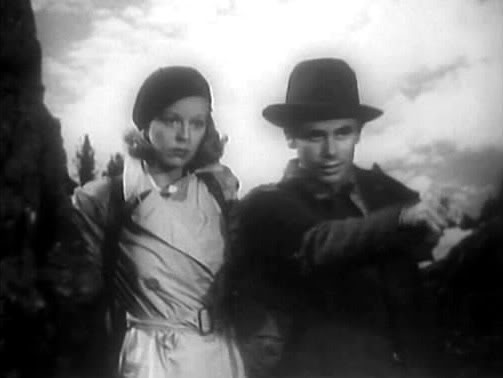So Ends Our Night (1941)

 |
So Ends Our Night (1941)
 Run time: 117 min | Drama, War | 27 February 1941 (USA) Run time: 117 min | Drama, War | 27 February 1941 (USA) Rating: 6.8 Rating: 6.8 Director: John Cromwell Director: John Cromwell Writers: Erich Maria Remarque, Talbot Jennings Writers: Erich Maria Remarque, Talbot Jennings Stars: Fredric March, Margaret Sullavan, Frances Dee Stars: Fredric March, Margaret Sullavan, Frances Dee |
| Storyline Based on a novel by Erich Maria Remarque (author of All Quiet on the Western Front), and set in Austria, Germany, and Switzerland during World War II, it deals with a mixed group of stateless refugees trying to find sanctuary from the Nazis and in constant fear of deportation. |
|
| Details: | |
| Box Office Budget: $401,000 (estimated) |
|







The mind-numbing horror of Fascism in Germany was bad enough, even before the ultimate horror of the Holocaust was eventually made known, and "So Ends Our Night" was an extremely brave attempt in 1941 to bring home to the people of the USA, (before they entered WW2), the extent of repression and State-sanctioned bigotry that Nazi Germany had imposed on its people from the 30s onwards. Set within the context of a conventional Hollywood drama, it nevertheless pulled few punches and showed how tyrannical governments subject their people by gradually increasing degrees, and how freedom is eroded rather than outlawed overnight. Seeing it with post-Holocaust eyes makes its warning that the price of freedom is eternal vigilance, even more powerful and cogent, and it is a film that also manages to show that it is not governments that "bestow" freedom, but the determination and will of people themselves to maintain it. Well directed by John Cromwell, and with excellent performances from Frederic March and Margaret Sullivan, (who particularly seems to infuse her performance with genuine conviction), with welcome appearances from Anna Sten (a much better actress than has ever been fully recognised), and Erich von Stroheim, as well as a very young Glenn Ford. Although seldom remembered nowadays, this is a film that is well worth seeking out, and I don’t think you will be disappointed if you do so. Highly recommended, and long overdue for critical rehabilitation.
This is a most depressing but well done adaptation of Remarque’s novel FLOTSAM – dealing with those who are without passports and therefore at the beck and call of all nations’ police forces, always hiding, always in fear of being deported, set in WW II Austria, Germany and Switzerland. Margaret Sullavan shines in one of her finest performances as a Jewish chemist who must flee the Nazis. A very young Glenn Ford gives a fine performance as the idealistic young man in lover with her. Fredric March stars but his story is far less interesting than theirs. The score was nominated for an Oscar. One riveting scene early in the film occurs when Fredric March is following his estranged wife (Frances Dee) in the market place, saying farewell to her as he walks behind her. She is unable to turn or respond to him in any way as she is under surveillance and this might lead to his arrest. Dee’s face in this sequence is astonishing to watch – a great moment in cinema.
I would recommend this film to be watched by anyone. I first saw it at a teenager and have never forgotten it. The film handled a hopeless situation in a very humane and touching way. With the problems in Kosovo now the film is just as up to date as it was in 1941 when it was made. I would give this film a 10+ rating in my opinion.
Stateless refugees from Hitler's Germany must move from one country to the next in this realistic film from 1941. The realism is in the cast of actors other than the well known Glenn Ford, Frederic March, Frances Dee, and Margaret Sullavan, those playing the smaller but important parts of spies, sympathizers, officials, restaurateurs, nurses, etc…all with a keen eye for authenticity and details. As well, one of the best parts in the film is played by Erich Von Stroheim as an intelligent, sympathetic, and cunning SS officer who's out to arrest the non-conformist played in a terrific part by Frederic March. So while we follow the main characters and a touching love story and a biting role for March, the real value of the picture is the portrait it paints in its portrayals of the other people caught up in the pre-war manoeuvrings.